BANK OF ALBANIA
Governor Sejko meets with the Minister of Finance and Economy Ms Delina Ibrahimaj
Publication date: 02.03.2022
On 1 March 2022, the Governor of the Bank of Albania, Mr Gent Sejko, held a meeting with the Minister of Finance and Economy, Ms Delina Ibrahimaj, to discuss about the current situation and the expected economic performance of Albania.
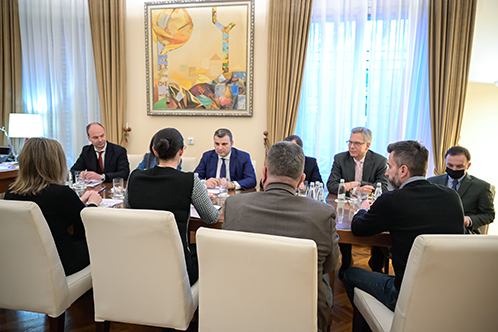
Their conversation focused on the assessment of possible risks that the Albanian economy may face as the conflict between Russia and Ukraine escalates, and the necessary measures to prevail over the situation. The impact of this conflict on the global economy has become apparent, regarding both higher prices of basic items and greater insecurity felt by investors and the financial markets.
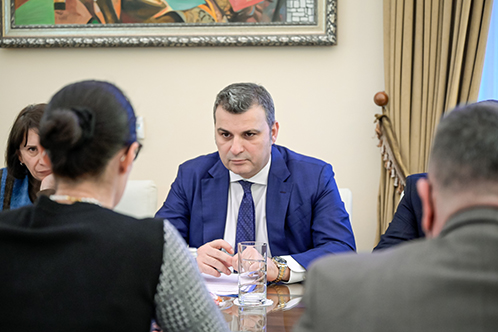
As a result, the Bank of Albania and the Ministry of Finance and Economy are working intensively and responsibly to evaluate the economic, market, and financial exposure of Albania to countries involved in the conflict, as well as the expected impact of this conflict on the future. The assessments to date suggest that the economic and financial soundness of Albania remains solid, and the expected impact of the geopolitical tension is expected to be contained and manageable.
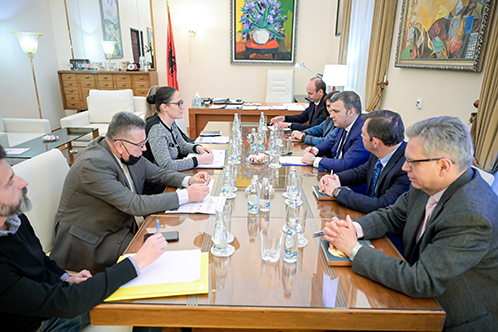
To put it more concretely, the Bank of Albania assesses that - overall - the direct market and economic exposure of Albania to Russia and Ukraine, is low. Also, the economic and financial stability of the country is consolidated. The exchange rate appears stable and the foreign currency reserve remains at adequate levels. In particular, the activity of the banking sector runs smoothly, with good indicators of capitalisation, liquidity, and performance, as well as low exposure to the region that is in conflict.
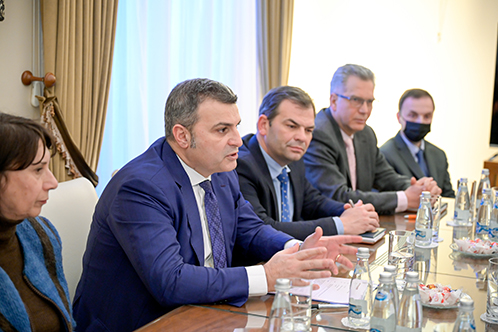
Our preliminary stress tests show that the Albanian economy has the adequate space to withstand possible shocks that come from the direct exposure to countries in conflict. These shocks may be engendered by the reduction or interruptions in market flows, the increase of prices of certain goods, or the heightened insecurity in international financial markets. If the conflict remains contained in its time and geographical dimensions, the marks of these shocks will be only transitory on both the economic activity and inflation.
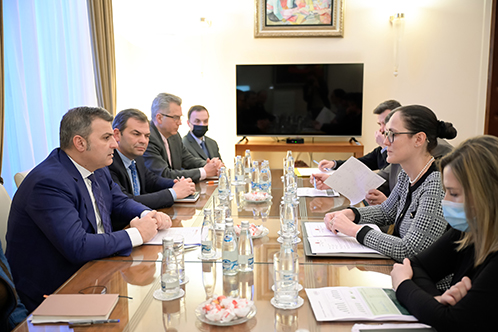
The Bank of Albania and the Ministry of Finance and Economy concurred that the attention of the monetary and fiscal policy should be steered towards maintaining the balance of the Albanian economy and finance, by employing the adequate instruments and space available to mitigate possible shocks. Furthermore, both institutions expressed their availability to undertake any necessary action to minimise possible negative effects. The coordinated activity will be decisive in order to mitigate risks and to go through more safely the challenging period ahead.
In addition, the Bank of Albania and the Ministry of Finance and Economy agreed that the situation should continue to be carefully monitored. The further escalation of the situation and the potential extension of the conflict to other countries would give rise to a new economic reality and would require more comprehensive measures to be taken.

 Linkedin
Linkedin
 Twitter
Twitter
 Youtube
Youtube
 Facebook
Facebook
 Flickr
Flickr
 RSS
RSS
 Subscribe
Subscribe
 Feedback
Feedback